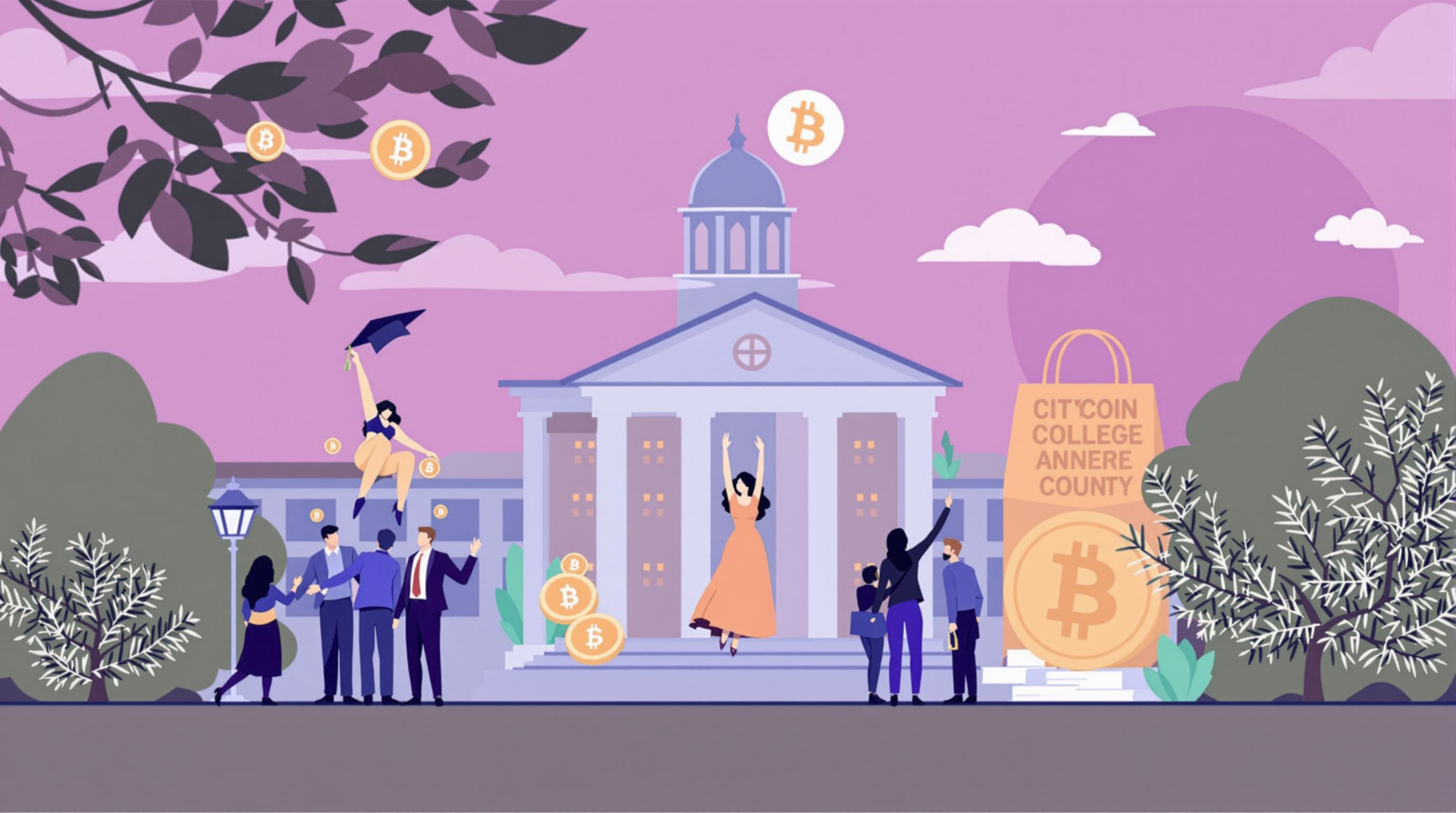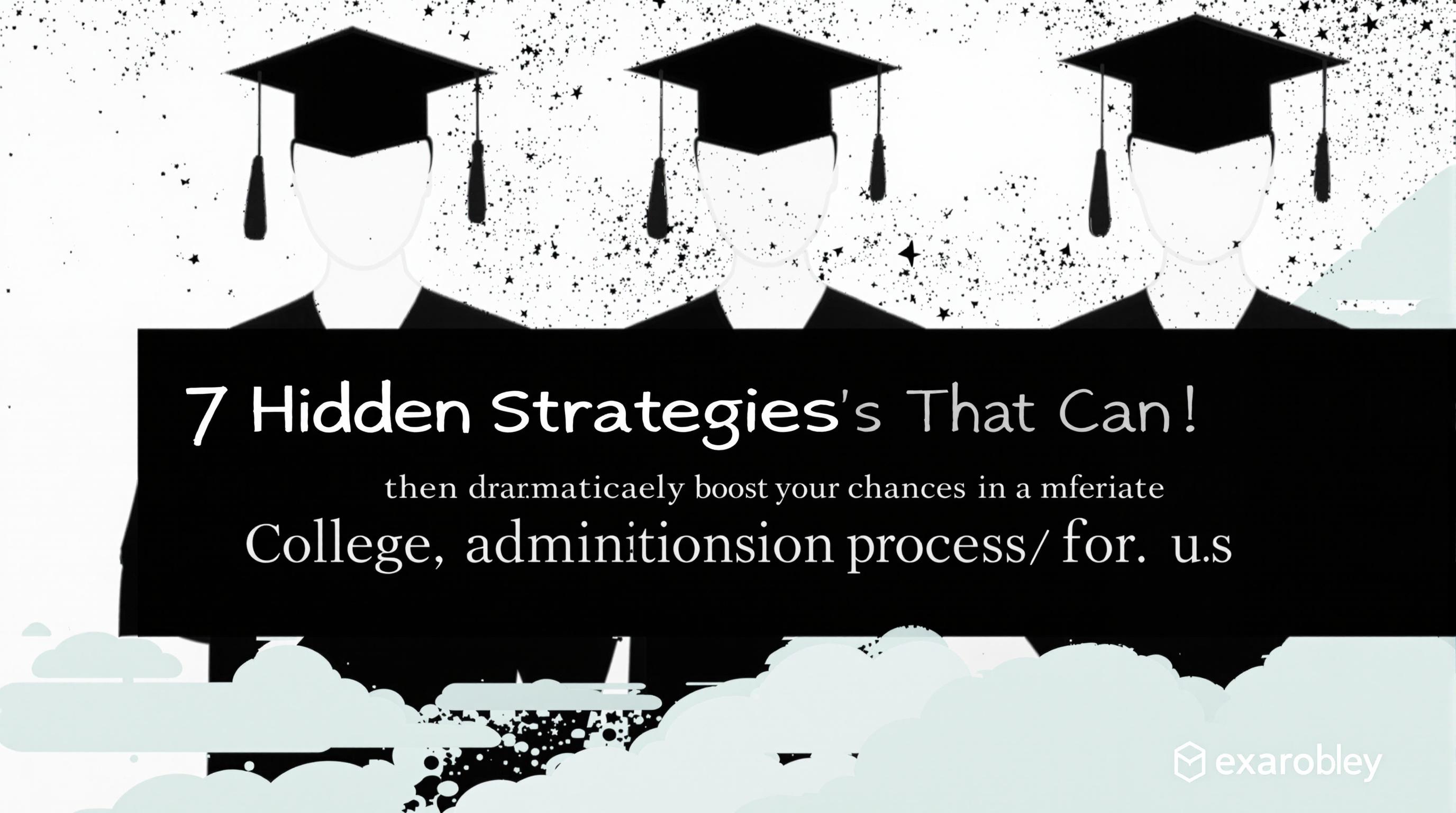Featured Articles
- 10 Unseen Factors That Could Transform Your College Admissions Experience in 2024
- 11 Surprising Trends in College Admissions: How Cryptocurrencies Could Influence Your Acceptance in 2024
- 7 Hidden Strategies That Can Dramatically Boost Your Chances in the College Admissions Process Today
- Beyond Grades: How Video Game Skills and Esports Experience Influence College Admissions in 2024
- "Beyond Test Scores: The Rise of Emotional Intelligence in College Admissions Decisions"
Beyond Grades: How Video Game Skills and Esports Experience Influence College Admissions in 2024
Beyond Grades: How Video Game Skills and Esports Experience Influence College Admissions in 2024
As college admissions evolve in 2024, the significance of traditional academic metrics like grades is increasingly being challenged by the emerging importance of video game skills and esports experience. This article explores how these attributes shape the college admission landscape, highlighting various perspectives, statistics, and real-world implications.
The Rise of Esports in Education
Once considered merely a pastime, esports has surged into the mainstream, capturing attention from educators, parents, and students alike. As of 2023, a staggering 70% of colleges in the United States have recognized esports as a potential avenue for scholarships, according to the National Association of Collegiate Esports (NACE).
Grades vs. Skills: Where Do Colleges Stand?
In 2024, college admissions committees are looking beyond GPAs and SAT scores. They're assessing applicants holistically, including their extracurricular activities, leadership skills, teamwork, and, notably, their online gaming prowess. For instance, students who excel in competitive gaming often showcase traits—like strategic thinking, quick decision-making, and resilience—that traditional scores may not capture.
Case Study: A Player’s Journey
Take the story of 19-year-old Jamie, an avid League of Legends player from California. Jamie spent years honing her skills, which not only earned her a spot on her high school's esports team but also garnered attention from nearby universities offering esports scholarships. This experience not only enriched her college application but also provided her with vital skills applicable to her major in computer science, demonstrating how gaming can intersect with academic pursuits.
Breaking Stereotypes: The Gamers’ Advantage
Admittedly, gamers have often faced a negative stereotype—being relegated to the basement, glued to a screen. However, research shows that 86% of employers in the tech industry value candidates with gaming backgrounds for their problem-solving and analytical skills (Source: TechRecruit 2023). This newfound recognition is trickling down to colleges eager to attract dynamic, diverse individuals who can thrive in collaborative environments.
How Esports Develops Soft Skills
In addition to technical skills, participating in esports fosters valuable soft skills. From my own experience as an 18-year-old college hopeful, being part of a competitive gaming community improved my communication and leadership skills exponentially. I learned to lead a team through challenging situations, maintain composure under pressure, and work creatively to solve problems—qualities that colleges cherish in potential students.
Statistics Speak: The Numbers Behind the Trend
According to a 2024 survey by Education Dynamics, 78% of admissions officers now consider an applicant's gaming experience a constructive addition to their application. This statistic underscores how burgeoning societal norms are redefining the path to higher education.
Second Chances: Esports for Non-Traditional Students
As we look to the future, it’s essential to recognize how esports provides opportunities for non-traditional students. Many individuals discover their passion for gaming in their later years—did you know that around 30% of college students aged 25 and older participate in gaming? This demographic is now finding that their skills can be a ticket to enriching educational experiences.
A Case for Inclusivity
Older gamers are not just fading away; they are finding new pathways for education. One inspiring example is Michael, a 45-year-old dad who turned to competitive gaming after losing his job. He found a community, developed skills, and subsequently applied to a community college—where he was accepted, in part due to his unique life experiences and gaming achievements.
Campuses Embracing a New Culture
Not only are individual students finding success, but college campuses themselves are beginning to embrace this shift towards esports. Institutions like the University of California, Irvine, have established esports programs that blend academic rigor with gaming culture, offering students the chance to pursue studies like game design while competing at a collegiate level.
Scholarship Opportunities: A Closer Look
Scholarships are abundant; aside from traditional sports, various universities now allocate significant funding for esports. For example, over $16 million in scholarships was awarded to students involved in esports in 2023 (Source: NACE). These opportunities have led to increased enrollment in programs related to gaming, such as game development and digital media.
Connect with Your Community
Moreover, many campuses are recognizing that a vibrant gaming scene can bolster student engagement. Campus esports clubs and tournaments foster a sense of community. This creates opportunities for students to connect, network, and engage in various academic initiatives while indulging in their passion for gaming.
The Fallout of Neglecting Gaming Skills
Ignoring the skills associated with gaming may lead college admissions to overlook high-potential candidates. As education becomes more inclusive, it risks being out of touch with the skills that today's students possess. With traditional grading systems often failing to provide an all-encompassing view of a student's abilities, colleges that adapt to valuing these skills will lead the pack.
A Personal Story of Triumph
Illustrating this point is the story of Jake, a former DOTA 2 player from New York. Despite mediocre grades, his dedication to teamwork and leadership earned him a scholarship. Today, Jake stands as a testament to how performance in video gaming can translate into real-world advantages.
The Future Looks Bright
Looking ahead, it’s impossible to deny that the landscape of college admissions is changing. Esports influence not only enriches the applicant pool but encourages colleges to embrace a culture that celebrates diverse talents. As the importance of video game skills increases, so too will the opportunities for students who have been marginalized or overlooked.
Final Thoughts: Embrace Your Passion
In a world where over 3 billion people engage in gaming (Source: Newzoo, 2024), it’s time for everyone—students, educators, and admissions officers—to take these skills seriously. Whether you're a traditional student looking for a competitive edge or an older applicant wanting to showcase your expertise, the message is clear: your skills matter. Dive deep into your passions, and who knows? You might just find your unique ticket to college.
In Conclusion
As we approach the ever-evolving future of education, it’s essential to remember that holistic assessments can lead to greater inclusivity. Investing in gaming skills and recognizing esports experience as valuable can redefine the path toward a successful college education. So, gear up, level up, and remember: sometimes, the real MVPs aren't just found in the classroom.




